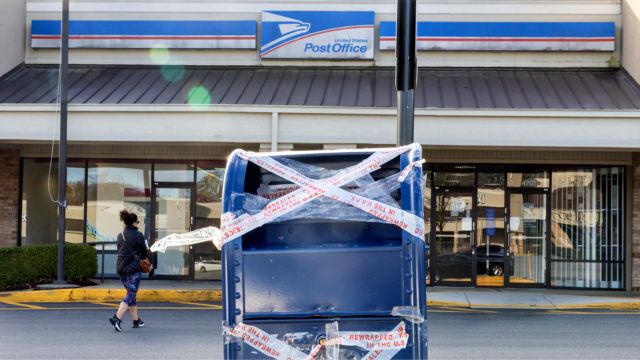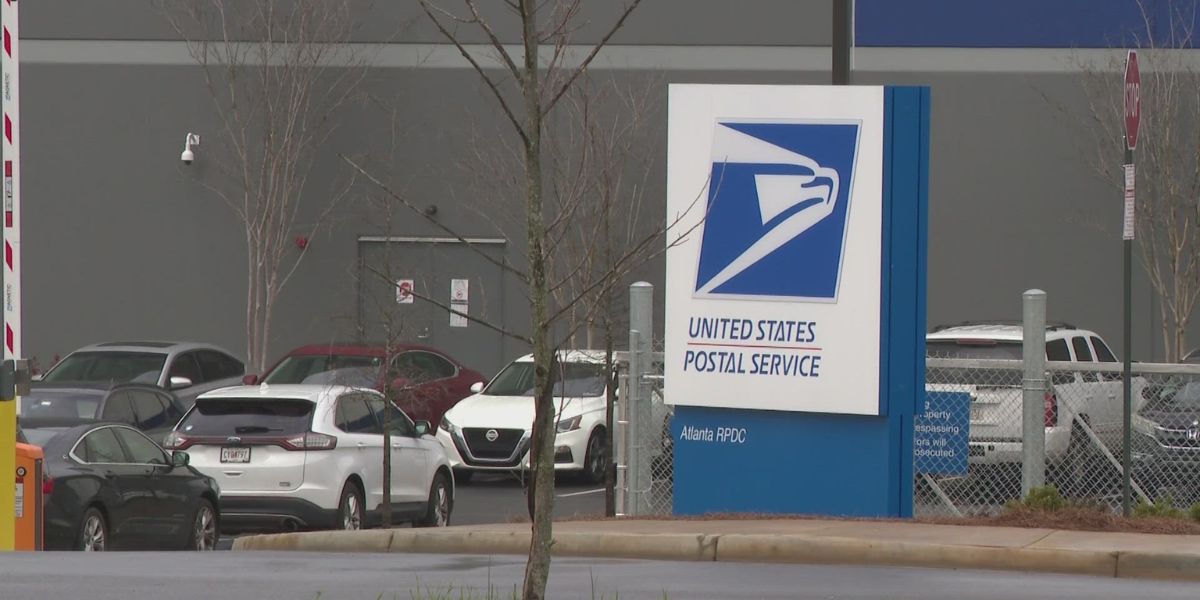Atlanta Mail Delays Exposed in USPS Audit Report, Check Here
ATLANTA — There have been delays in the consolidation process at postal facilities in metro Atlanta and other places. A new audit report from the USPS Office of Inspector General looks into these delays and finds that the people in charge of making the changes are “at risk of not being prepared to quickly implement planned relocations.”
“While the Postal Service was able to relocate machines, we found there was confusion at the facilities visited regarding roles and responsibilities for completing the process,” the report says.
In related news, postal problems at a metro Atlanta center are still causing people to ask, “What can I do?”
SEE MORE: Trump Pays Respects at NYPD Officer’s Wake Amid Campaign Focus on Crime
The audit report, which was called “Mail Processing Machine Relocation,” came out this week. It checks on the progress of the USPS’s plan to update the whole system. Atlanta was one of the first places to start combining schools, and inspectors who were writing the report visited three schools in metro Atlanta.
The Atlanta Network Distribution Center, the North Metro Processing & Distribution Center in Duluth, and the new Atlanta Regional Processing & Distribution Center in Palmetto are some of them. The latter is the center of the recent mail problems in the metro area. It opened on February 24 and combines processing and delivery centers in the Atlanta, Augusta, Macon, and Duluth areas. These centers are now being used as local processing centers.

11Alive has asked USPS several times for answers to questions that would help them paint a better picture of what’s going on at the Palmetto facility. In their most recent answer on Tuesday, they said they had no more news.
There are more and more complaints on 11Alive from viewers who have had frustrating mail delays or other issues with everything from small business packages to medicine deliveries to tax papers. There have been calls for answers from Georgian lawmakers on both sides of the line, such as Republican Rep. Mike Collins and Democratic Sen. Jon Ossoff.
When the report came out late Thursday night, it put a new light on the problems. In particular, it talks about moving mail processing tools. The inspectors said that there is a plan for moving these machines, but it is not being carried out evenly.
SEE MORE: Shooting Incident Unfolds: Victim Injured in Southeast DC Property Transaction
“We found local management was not uniformly aware of roles and responsibilities or consistently applying the process for the planned mail processing machine relocations,” it says. “…in 15 of 16 interviews conducted, local management stated they were not provided clear communication,” about the move.
“Without full awareness or consistent application of the (mail processing equipment) relocation process, there is the potential for untimely or incorrect relocations of (mail processing equipment) during (Regional Processing & Distribution Center) transitions,” it says. “Additionally, there is an increased risk that reporting systems are not updated timely to provide management current and accurate operational data and visibility into whether operation changes are impacting service.”
The study makes a number of suggestions:
Make sure that the updated processes and checklist include the correct roles and responsibilities for the machine relocation process. Write down the updated processes and checklist in AS-701 and the Postal Handbook. Come up with a way to communicate clear and consistent procedures, including roles and responsibilities, for the machine relocation process. Make sure that all moved mail processing equipment has an accurate capital property identification label on it.
The report included a response letter from USPS management. In it, they said they agreed with the first recommendation and that checklists and other related documents had been updated; they also said they agreed with the second recommendation and that the handbook would be updated; they agreed with the third recommendation and that documents and policies had been updated; and they agreed with the fourth recommendation and issued a joint memorandum that “reinforced roles, responsibilities, and the requirement for accountability and
John Dunlop, who is vice president for plant and process modernization, Dane Coleman, who is vice president for processing and repair operations, Mark Guilfoil, who is vice president for supply management, and Linda Malone, who is vice president for engineering systems, all signed that post.











